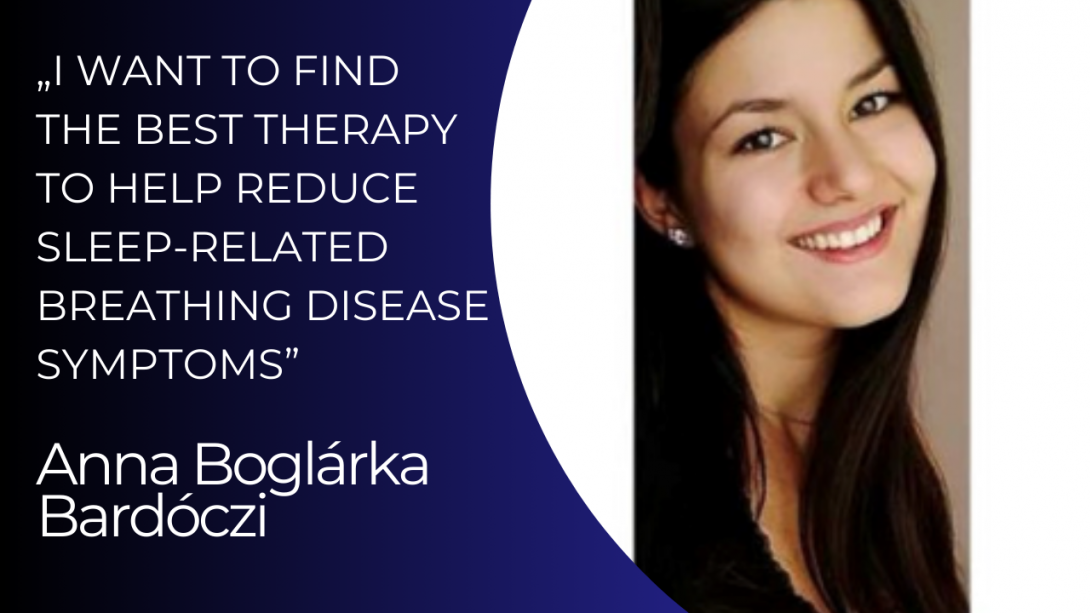
Her aim is to improve the treatment and quality of life of patients suffering from sleep-related breathing disorders, such as obstructive sleep apnea and Pickwickian syndrome. If her meta-analysis confirms her findings, it could even change the clinical protocols for these diseases. In March, Dr. Anna Boglárka Bardóczi was named the Best First-Year Ph.D. Student at the Centre for Translational Medicine.
Anna Boglárka Bardóczi is a pulmonary resident, who started her PhD training this academic year. The CTM program was recommended to her by the director of the Department of Pulmonology, Prof. Veronika Müller. “I am researching sleep-related breathing disorders, and want to find the best therapy to help reduce patients’ symptoms. Currently, I am investigating the effectiveness of GLP-1 analogs in obstructive sleep apnea patients. These drugs are used for diabetes and obesity, but they also seem to be useful for sleep apnoea and other conditions, such as asthma, osteoporosis, and polycystic ovary syndrome. In the case of sleep apnea, researchers are trying to determine whether patients who lose weight with this drug have reduced their symptoms of obstructive sleep apnea. Researchers are also investigating the drug's direct respiratory effects. The studies show that breathing interruptions have been reduced in people who have used this medicine for a short time, although they have not lost significant weight yet. This indicates that the drug may have beneficial effects on the respiratory system.” Dr. Bardóczi aims to clarify this question with a meta-analysis. If the drug is found to be useful, it could be used as an adjunctive therapy for sleep apnoea. In mild to moderate sleep apnoea, the drug may even be a treatment to replace CPAP (continuous positive airway pressure) therapy.
Her other topic relates to Pickwickian syndrome. Patients with this condition are treated with BiPAP therapy (positive pressure ventilation) worldwide, but it is uncertain whether this is really necessary. “The BiPap machine is much more expensive than the CPAP machine, and its application is more complicated. Therefore, the effectiveness and safety of positive airway pressure therapies in Pickwick syndrome need to be assessed. If it is found that continuous positive airway pressure is sufficient, then CPAP therapy would be suitable for these patients as well. BiPAP therapy would only be necessary if CPAP therapy isn’t enough for the patients.”
(Emese Szabó)